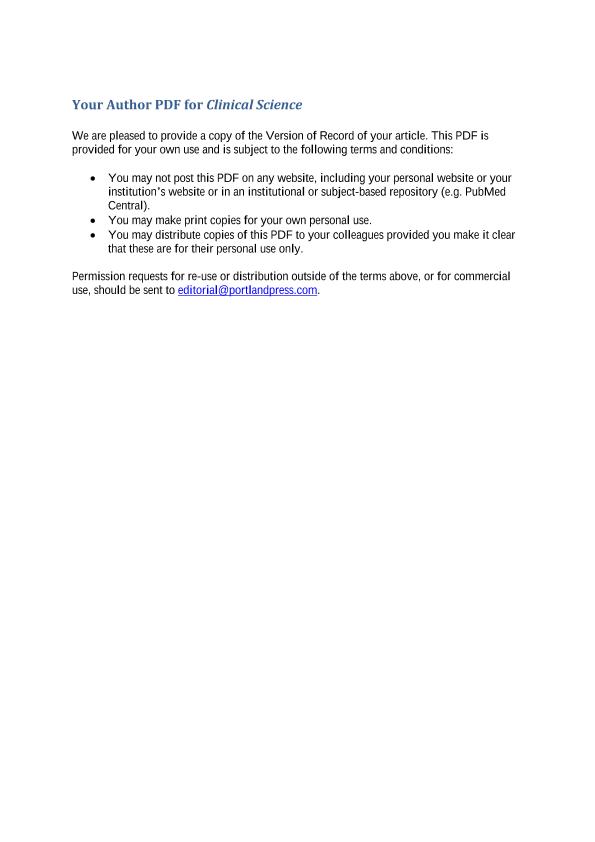Mostrar el registro sencillo del ítem
dc.contributor.author
Balboa, Luciana

dc.contributor.author
Barrios Payan, Jorge
dc.contributor.author
González Domínguez, Erika
dc.contributor.author
Lastrucci, Claire
dc.contributor.author
Lugo Villarino, Geanncarlo
dc.contributor.author
Mata Espinoza, Dulce
dc.contributor.author
Schierloh, Luis Pablo

dc.contributor.author
Kviatcovsky, Denise

dc.contributor.author
Neyrolles, Olivier
dc.contributor.author
Maridonneau Parini, Isabelle
dc.contributor.author
Sánchez Torres, Carmen
dc.contributor.author
Sasiain, María del Carmen

dc.contributor.author
Hernández Pando, Rogelio
dc.date.available
2018-03-23T18:29:40Z
dc.date.issued
2015-04
dc.identifier.citation
Balboa, Luciana; Barrios Payan, Jorge; González Domínguez, Erika; Lastrucci, Claire; Lugo Villarino, Geanncarlo; et al.; Diverging biological roles among human monocyte subsets in the context of tuberculosis infection; Portland Press; Clinical Science; 129; 4; 4-2015; 319-330
dc.identifier.issn
0143-5221
dc.identifier.uri
http://hdl.handle.net/11336/39825
dc.description.abstract
Circulating monocytes (Mo) play an essential role in the host immune response to chronic infections. We previously demonstrated that CD16pos Mo were expanded in TB (tuberculosis) patients, correlated with disease severity and were refractory to dendritic cell differentiation. In the present study, we investigated whether human Mo subsets (CD16neg and CD16pos) differed in their ability to influence the early inflammatory response against Mycobacterium tuberculosis. We first evaluated the capacity of the Mo subsets to migrate and engage a microbicidal response in vitro. Accordingly, CD16neg Mo were more prone to migrate in response to different mycobacteria-derived gradients, were more resistant to M. tuberculosis intracellular growth and produced higher reactive oxygen species than their CD16pos counterpart. To assess further the functional dichotomy among the human Mo subsets, we carried out an in vivo analysis by adapting a hybrid mouse model (SCID/Beige, where SCID is severe combined immunodeficient) to transfer each Mo subset, track their migratory fate during M. tuberculosis infection, and determine their impact on the host immune response. In M. tuberculosis-infected mice, the adoptively transferred CD16neg Mo displayed a higher lung migration index, induced a stronger pulmonary infiltration of murine leucocytes expressing pro- and anti-inflammatory cytokines, and significantly decreased the bacterial burden, in comparison with CD16pos Mo. Collectively, our results indicate that human Mo subsets display divergent biological roles in the context of M. tuberculosis infection, a scenario in which CD16neg Mo may contribute to the anti-mycobacterial immune response, whereas CD16pos Mo might promote microbial resilience, shedding light on a key aspect of the physiopathology of TB disease.
dc.format
application/pdf
dc.language.iso
eng
dc.publisher
Portland Press

dc.rights
info:eu-repo/semantics/openAccess
dc.rights.uri
https://creativecommons.org/licenses/by-nc-sa/2.5/ar/
dc.subject
Bacterial Infection
dc.subject
Cell Movement
dc.subject
Monocytes
dc.subject
Mycobacterium Infection
dc.subject
Pulmonary Infection
dc.subject
Tuberculosis
dc.subject.classification
Inmunología

dc.subject.classification
Medicina Básica

dc.subject.classification
CIENCIAS MÉDICAS Y DE LA SALUD

dc.title
Diverging biological roles among human monocyte subsets in the context of tuberculosis infection
dc.type
info:eu-repo/semantics/article
dc.type
info:ar-repo/semantics/artículo
dc.type
info:eu-repo/semantics/publishedVersion
dc.date.updated
2018-03-09T14:44:53Z
dc.journal.volume
129
dc.journal.number
4
dc.journal.pagination
319-330
dc.journal.pais
Reino Unido

dc.journal.ciudad
Londres
dc.description.fil
Fil: Balboa, Luciana. Consejo Nacional de Investigaciones Científicas y Técnicas. Instituto de Medicina Experimental. Academia Nacional de Medicina de Buenos Aires. Instituto de Medicina Experimental; Argentina
dc.description.fil
Fil: Barrios Payan, Jorge. Instituto Nacional de Ciencias Médicas y Nutrición "Salvador Zubirán"; México
dc.description.fil
Fil: González Domínguez, Erika. Instituto Politécnico Nacional; México
dc.description.fil
Fil: Lastrucci, Claire. Institut de Pharmacologie et de Biologie Structurale; Francia
dc.description.fil
Fil: Lugo Villarino, Geanncarlo. Institut de Pharmacologie et de Biologie Structurale; Francia
dc.description.fil
Fil: Mata Espinoza, Dulce. Instituto Nacional de Ciencias Médicas y Nutrición "Salvador Zubirán"; México
dc.description.fil
Fil: Schierloh, Luis Pablo. Consejo Nacional de Investigaciones Científicas y Técnicas. Instituto de Medicina Experimental. Academia Nacional de Medicina de Buenos Aires. Instituto de Medicina Experimental; Argentina
dc.description.fil
Fil: Kviatcovsky, Denise. Consejo Nacional de Investigaciones Científicas y Técnicas. Instituto de Medicina Experimental. Academia Nacional de Medicina de Buenos Aires. Instituto de Medicina Experimental; Argentina
dc.description.fil
Fil: Neyrolles, Olivier. Institut de Pharmacologie et de Biologie Structurale; Francia
dc.description.fil
Fil: Maridonneau Parini, Isabelle. Institut de Pharmacologie et de Biologie Structurale; Francia
dc.description.fil
Fil: Sánchez Torres, Carmen. Instituto Politécnico Nacional; México
dc.description.fil
Fil: Sasiain, María del Carmen. Consejo Nacional de Investigaciones Científicas y Técnicas. Instituto de Medicina Experimental. Academia Nacional de Medicina de Buenos Aires. Instituto de Medicina Experimental; Argentina
dc.description.fil
Fil: Hernández Pando, Rogelio. Instituto Nacional de Ciencias Médicas y Nutrición "Salvador Zubirán"; México
dc.journal.title
Clinical Science

dc.relation.alternativeid
info:eu-repo/semantics/altIdentifier/doi/http://dx.doi.org/10.1042/CS20150021
dc.relation.alternativeid
info:eu-repo/semantics/altIdentifier/url/http://www.clinsci.org/content/129/4/319
Archivos asociados
